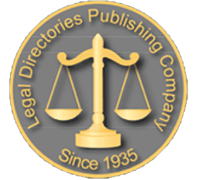Small Business Lawyer: What They Do & How to Hire
Let’s be honest: one of the first things business owners worry about is the cost of legal help. But viewing a lawyer as just another expense is a mistake that can cost you far more down the road. A single poorly worded contract or a handshake deal gone wrong can lead to disputes that drain your time and money. The right small business lawyer is an investment in your company’s future. They save you from costly errors by getting things right from the start. Their guidance is about protecting your assets, minimizing risk, and creating a stable foundation for sustainable growth.
Key Takeaways
- Use Legal Counsel for Prevention, Not Just Problems: A business lawyer is most valuable when they help you prevent issues before they start. Involving them early in decisions about business structure, contracts, and compliance saves you significant time and money compared to hiring one to fix a crisis.
- Prioritize Key Legal Protections for Your Business: Focus on the essentials first. A lawyer helps establish the correct legal entity to shield your personal assets, drafts clear contracts to avoid disputes, and secures your intellectual property to protect your brand’s value.
- Build a Productive Partnership Through Clear Communication: The best lawyer-client relationships are built on transparency. Be clear about your goals, understand the fee structure upfront, and maintain open communication to ensure you get the most effective legal support for your business.
What Does a Small Business Lawyer Actually Do?
When you think of a business lawyer, you might picture someone you only call when you’re in trouble. But the truth is, a great small business lawyer is a proactive partner who helps you build a stronger, more secure company from day one. They’re the expert in your corner, handling the complex legal details so you can focus on what you do best: running your business. From laying the proper legal groundwork to navigating disputes, their job is to protect your interests and help you grow with confidence. Think of them less as an emergency contact and more as a key member of your strategic team.
Help You Form and Structure Your Business
One of the very first decisions you’ll make as a business owner is choosing your legal structure. Should you be an LLC, a sole proprietorship, or a corporation? This choice has significant implications for your personal liability, taxes, and ability to raise capital. A business attorney guides you through this critical step, explaining the pros and cons of each option for your specific situation. They handle the paperwork for corporate formation, draft your operating agreements, and ensure you start your venture on solid legal footing, protecting your personal assets from business debts right from the beginning.
Draft and Review Your Contracts
Your business runs on contracts—with clients, vendors, employees, and partners. A poorly written agreement can leave you exposed to financial loss and legal headaches. A small business lawyer is essential for drafting and reviewing all your legal agreements. They create clear, enforceable contracts that protect your interests and minimize ambiguity. They can also review contracts presented to you by other parties, spotting potential red flags and negotiating more favorable terms. This ensures every partnership you enter is built on a foundation of legal clarity and protection.
Keep Your Business Compliant
The landscape of business regulations is constantly changing. From local zoning ordinances to state-level industry requirements and federal laws, staying compliant can feel like a full-time job. A business lawyer helps you keep up with all relevant laws and regulations that affect your company. They can advise you on licensing, permits, and industry-specific rules, helping you avoid costly fines and penalties. This ongoing guidance is crucial for maintaining your business’s good standing and ensuring your operations continue to run smoothly without legal interruptions.
Guide You on Employment Law
As soon as you hire your first employee, you step into the complex world of employment law. A small business attorney can be an invaluable resource here. They help you create compliant employee handbooks, draft employment contracts, and establish proper hiring and termination procedures. They can also provide guidance on navigating sensitive issues like wage disputes, workplace discrimination, and wrongful termination claims. Having an expert advise you on these matters helps you foster a fair workplace and protects your business from potentially damaging employee lawsuits.
Protect Your Intellectual Property
Your brand name, logo, products, and creative works are some of your most valuable assets. This is your intellectual property (IP), and it needs to be protected. A business lawyer can help you secure your IP by filing for trademarks and copyrights. They can also defend you if another business infringes on your rights or if you’re accused of infringing on someone else’s. By legally protecting your brand and original ideas, your lawyer helps safeguard the unique identity and competitive edge you’ve worked so hard to build.
Resolve Business Disputes
Even with the best planning, disagreements can happen. Whether it’s a client who won’t pay, a vendor who didn’t deliver, or a conflict with a business partner, disputes can drain your time and resources. A lawyer specializing in business litigation can step in to represent your interests. They can handle negotiations, pursue mediation, or, if necessary, represent you in court. Their goal is to resolve the conflict as efficiently as possible while protecting your company’s bottom line and reputation, allowing you to get back to business.
Why Your Business Needs a Lawyer
Thinking of a lawyer as someone you only call when you’re in trouble is a common mistake. The smartest business owners know that a good lawyer is a strategic partner who helps you build a stronger, more resilient company from day one. Instead of reacting to problems, you can get ahead of them, saving yourself time, money, and stress down the road. Having an experienced attorney on your side means you have an expert who can guide you through complex decisions, protect your assets, and help you plan for sustainable growth. They’re an essential part of your team, providing the legal foundation you need to operate with confidence.
Prevent Problems Before They Start
The best way to handle a legal issue is to stop it from ever happening. A business lawyer acts as your first line of defense, helping you make sound decisions from the very beginning. When you’re just starting, they can guide you through the crucial steps of business formation, ensuring you choose the right structure for your goals. This proactive approach extends to everything from drafting solid contracts to reviewing lease agreements before you sign. By identifying potential risks and addressing them early, your attorney helps you build a business on solid legal ground, preventing small oversights from turning into major disputes later on.
Stay on the Right Side of the Law
Running a business involves a web of local, state, and federal regulations that can be difficult to keep up with. A lawyer helps you understand and comply with all the legal rules that apply to your industry. They ensure you have the right licenses and permits to operate legally and that your business practices meet all current standards. This guidance is crucial for protecting you, the owner, from both personal and professional liability. With an attorney keeping an eye on your legal obligations, you can focus on running your business, confident that you’re doing things by the book.
Protect Your Business and Personal Assets
One of the most important things a lawyer does is help you create a legal separation between your business and personal finances. By helping you form a structure like a Limited Liability Company (LLC), they build a protective wall around your personal assets, such as your home and savings. This means that if the business faces debts or a lawsuit, your personal wealth isn’t on the line. An attorney specializing in Florida business law can ensure your company is structured correctly to provide this critical protection, giving you peace of mind as you invest in your venture.
Support Your Company’s Growth
As your business evolves, your legal needs will change, too. A lawyer who understands your company can provide invaluable support at every stage of growth. They can assist with hiring your first employees, drafting partnership agreements, securing funding, or even planning for a future sale or acquisition. The team at Legal Counsel P.A. aims to build lasting relationships with clients, acting as trusted advisors who can offer tailored legal solutions as your business expands. This long-term partnership ensures you always have expert guidance to handle new opportunities and challenges that come your way.
Solve Issues Cost-Effectively
While hiring a lawyer has an upfront cost, it’s an investment that can save you a fortune in the long run. A single poorly worded contract or a handshake deal gone wrong can lead to a dispute that costs thousands in legal fees to resolve. By having a lawyer draft and review your legal documents correctly from the start, you can prevent many future disagreements. If a contract dispute does arise, your attorney can represent your interests and work toward a resolution, often without the need for expensive and time-consuming litigation.
Get Proactive Legal Advice
Having a lawyer on call means you have a strategic advisor you can turn to for everyday business matters, not just emergencies. They can offer proactive advice on everything from tax implications to operational decisions, helping you make choices that protect your financial interests. As your business grows, they become a key partner in safeguarding your money and property. Instead of guessing about the legal consequences of a decision, you can get clear, expert guidance. Ready to get proactive? You can contact our team to discuss how we can support your business.
How to Choose the Right Business Lawyer
Finding the right legal partner for your business is a critical decision. You’re not just hiring someone to handle paperwork; you’re looking for a trusted advisor who understands your vision and can help you achieve it while protecting your interests. The right lawyer will be a key player on your team, offering guidance that helps you grow with confidence. Taking the time to carefully evaluate your options will pay off immensely in the long run.
Look for Relevant Experience and Specialization
When you’re searching for a lawyer, you’ll want someone who lives and breathes business law, specifically within Florida. A general practitioner might be great for some things, but the complexities of commercial regulations require a specialist. Look for an attorney whose practice is focused on business law and litigation. They will be up-to-date on state-specific laws that could impact your company. An attorney with experience in your industry can also provide more tailored advice, understanding the unique challenges and opportunities you face. Don’t be afraid to ask about their specific experience with businesses like yours.
Find a Good Communicator
Your relationship with your lawyer should be a partnership built on clear and open communication. You need someone who can explain complex legal issues in a way that makes sense to you, without a lot of confusing jargon. A good lawyer will be responsive, keep you informed about your case, and listen to your concerns. During your initial conversations, pay attention to how they communicate. Do they answer your questions directly? Are they easy to talk to? A strong communicator will make you feel like a valued partner, ensuring you’re always on the same page about the direction of your business.
Understand Their Fee Structure
Legal costs can be a major concern for any business owner, so it’s essential to have a clear understanding of a lawyer’s fees from the very beginning. Ask potential attorneys how they bill for their services—whether it’s an hourly rate, a flat fee for specific projects, or a monthly retainer. There is no single “best” model; it depends on your needs. Make sure you get a written fee agreement that outlines all potential costs, including filing fees or other expenses. This transparency helps you budget for legal help and prevents any unwelcome surprises down the road.
Check Their References and Reviews
One of the best ways to gauge a lawyer’s effectiveness is to hear from past clients. Start by asking fellow business owners in your network for recommendations. You can also check online reviews and testimonials to get a sense of their reputation in the community. Don’t hesitate to ask a potential lawyer for references from clients they’ve worked with on similar issues. Speaking with someone who has been in your shoes can provide valuable insight into the attorney’s working style, responsiveness, and overall performance. The experience of the firm’s attorneys should be backed by positive client feedback.
Make the Most of the Initial Consultation
The initial consultation is your opportunity to interview a potential lawyer and decide if they’re the right fit for your business. Think of it as a two-way conversation. You’ll explain your legal needs, and they’ll explain how they can help. Come prepared with a list of questions about their experience, communication style, and fee structure. This meeting is also your chance to assess your comfort level with them. Do you feel confident in their abilities? Do your personalities mesh well? Trust your gut—a strong working relationship is crucial for long-term success.
Ask These Key Questions
To make your consultation as productive as possible, have a few key questions ready. This will help you compare different lawyers and make an informed choice.
Here are some important questions to ask:
- How many years have you been practicing business law in Florida?
- Have you worked with businesses in my industry before?
- Who will be my primary point of contact at your firm?
- What is your process for keeping clients updated on their cases?
- Can you provide a clear breakdown of your fees and billing practices?
- Based on what I’ve shared, what are the immediate next steps you would recommend?
Decoding Legal Fees: What to Expect
Let’s talk about one of the most common concerns when hiring a lawyer: the cost. Understanding legal fees shouldn’t feel like deciphering a secret code. A transparent conversation about costs is the foundation of a great client-attorney relationship. The final price tag for legal help depends on several factors, including the complexity of your case, the lawyer’s experience, and the specific services your business needs.
Knowing the different ways lawyers structure their fees will help you plan your budget and find the right legal partner for your business. At Legal Counsel P.A., we believe in being upfront about costs so you can make informed decisions. Our goal is to provide clear, predictable billing that aligns with the value we bring to your business and real estate matters.
Common Ways Lawyers Bill for Their Time
There’s no single way that lawyers bill for their work. The most common methods are hourly rates, flat fees, and retainers. The structure that makes the most sense for you will depend entirely on your legal needs. For example, ongoing business litigation might be billed hourly because the time commitment is unpredictable. In contrast, drafting a standard lease agreement is often a one-time, flat-fee project. A good attorney will walk you through the options and explain which billing method is best suited for your situation, ensuring you understand exactly what you’re paying for.
Hourly Rates vs. Flat Fees
Many attorneys charge by the hour for their services. You can generally expect to pay between $150 and $325 per hour, depending on the lawyer’s expertise and your location. This model is common for complex or ongoing issues where the total time required is difficult to predict. Alternatively, for well-defined tasks like forming an LLC or handling a real estate closing, many lawyers offer a flat fee. This is a single, upfront price for a specific service. A flat-fee arrangement gives you cost certainty, which is a huge plus when you’re managing a tight budget for your business law needs.
How Retainer Agreements Work
You’ve probably heard the term “retainer,” but what is it really? Think of a retainer as an upfront fee you pay to secure a lawyer’s availability and services. It’s like a down payment on future legal work. The funds are typically held in a special trust account, and the attorney bills their time against that balance. Retainers are common for clients who need ongoing legal advice or are entering into a long-term engagement. It ensures you have a dedicated legal expert ready to help whenever an issue arises, providing peace of mind and consistent support.
Watch Out for Additional Expenses
Your lawyer’s fee isn’t the only cost you might encounter. Legal cases often come with additional expenses that are separate from the attorney’s billable hours. These can include court filing fees, costs for serving legal documents, expert witness fees, or even travel expenses. It’s important to ask about these potential “pass-through” costs from the start. A detailed fee agreement should outline what is and isn’t included in the primary fee, so you have a complete picture of the total investment and can avoid any financial surprises down the road.
How to Budget for Legal Help
The best way to manage legal costs is to be proactive. Before you even hire an attorney, have a clear idea of what you can realistically afford. During your initial consultation, be open about your budget. This isn’t an awkward conversation; it’s a practical one that helps set expectations for both you and your lawyer. A good attorney will respect your financial boundaries and can often suggest ways to handle your legal needs more efficiently. Don’t hesitate to contact a lawyer to start this important discussion early in the process.
Assess the Value, Not Just the Price
When you’re choosing a lawyer, it’s tempting to focus solely on the price. However, the cheapest option isn’t always the best one for your business. Instead, consider the overall value an attorney provides. An experienced lawyer might have a higher hourly rate, but their expertise could solve your problem faster or prevent a costly mistake that a less-experienced attorney might miss. Investing in the right legal counsel protects your business, your assets, and your peace of mind. When you review a firm’s team of attorneys, think about the long-term benefit their experience brings to the table.
Key Legal Services Every Small Business Needs
As a business owner, you wear a lot of hats. You’re the CEO, the marketing director, the head of product, and often, the chief coffee maker. While you’re an expert in your industry, you can’t be an expert in everything—especially the complex world of business law. This is where having the right legal support becomes a game-changer. Certain legal services are not just for big corporations or for when you’re in trouble; they are the fundamental building blocks for a healthy, protected, and successful company.
Think of legal services as a proactive investment in your business’s future. Getting professional guidance on key issues from the start helps you build a strong foundation and avoid costly, time-consuming problems down the road. From the contracts you sign every day to the way you structure your company, a knowledgeable attorney ensures you’re set up for growth and shielded from unnecessary risks. They act as your strategic partner, helping you make informed decisions that align with your long-term goals. Covering your legal bases allows you to focus on what you do best: running and growing your business.
Managing Your Contracts
Contracts are the lifeblood of your business. They define your relationships with clients, vendors, employees, and partners. A poorly written or unreviewed contract can lead to serious misunderstandings, disputes, and financial loss. A business attorney can draft and review all your legal documents to ensure they are clear, fair, and, most importantly, enforceable under Florida law. They will work to protect your interests and minimize your risks in every agreement you make. Having a legal expert in your corner means you can sign on the dotted line with confidence, knowing your business is protected from potential conflicts before they even begin.
Registering and Licensing Your Business
How you structure your business from day one has long-term implications for your taxes, personal liability, and ability to grow. Should you be an LLC, a sole proprietorship, or a corporation? While you can file the paperwork yourself, an experienced attorney can help you choose the business entity that best fits your specific goals and circumstances. They will also handle the necessary state registrations and ensure you have all the required local licenses to operate legally. Getting your business structure right from the start is one of the smartest and most effective investments you can make in your company’s future.
Staying Compliant with Tax and Finance Laws
Navigating the world of business taxes and financial regulations can feel like a full-time job. A small business lawyer helps you understand your legal obligations and ensures your business stays compliant with all relevant laws. This is especially critical if you, as the owner, personally guarantee business loans or finances. An attorney can advise you on how to structure transactions and maintain corporate formalities to protect your personal assets from business debts. Their guidance helps you run your business on solid financial and legal footing, giving you the peace of mind to focus on growth.
Creating Solid Employment Agreements
As your business grows, you’ll likely need to hire help. Whether you’re bringing on your first employee or working with independent contractors, having clear, legally sound agreements is essential. An attorney can help you draft employment contracts, non-disclosure agreements (NDAs), and independent contractor agreements that comply with Florida labor laws. This protects both your business and your team by setting clear expectations for compensation, responsibilities, and confidentiality. Properly drafted agreements can prevent future disputes and help you build a positive and professional working environment for everyone involved.
Securing Your Intellectual Property Rights
Your brand name, logo, creative works, and unique products are some of your most valuable assets. These fall under the umbrella of intellectual property (IP). A business lawyer can help you understand how to protect your IP through trademarks, copyrights, and patents. They can conduct searches to make sure your brand name isn’t already taken and file the necessary applications to register your trademarks. Protecting your intellectual property prevents competitors from using your ideas or profiting from your hard work, securing your unique place in the market and safeguarding your brand’s identity for years to come.
Protecting Your Business from Liability
Liability is a risk every business owner faces. From a customer dispute to a disagreement with a vendor, potential legal issues are an unfortunate reality of doing business. A business lawyer is your first line of defense. They can help you implement strategies to minimize risk, such as ensuring you have the right insurance coverage and maintaining your corporate veil to protect your personal assets. Should a dispute arise, your attorney can represent you in negotiations or litigation. This proactive approach to business law and litigation is crucial for protecting your business from unforeseen events and ensuring its long-term stability.
How to Work Effectively With Your Lawyer
Once you’ve hired a lawyer, the work isn’t over. The next step is to build a strong, productive relationship. Think of your lawyer as a key member of your team—a strategic partner invested in your success. Like any professional relationship, it thrives on clear communication, mutual respect, and shared goals. By putting in the effort to work effectively with your legal counsel, you’ll get more value from their services and feel more confident in the decisions you make for your business. A great lawyer-client relationship is proactive, not just reactive. It’s about having a trusted advisor you can turn to for guidance as your business grows and faces new challenges, ensuring you’re always on solid legal ground.
Set Clear Expectations from the Start
Before your lawyer can start working for you, they need to know what you want to accomplish. Be specific about your goals. Don’t just say you need help with a contract; explain what the contract is for, what your ideal outcome is, and any concerns you have. The clearer you are, the better your attorney can tailor their approach. This is also the time to discuss practical matters like how you prefer to communicate, how often you’d like updates, and what their billing process looks like. Getting on the same page from day one prevents misunderstandings and helps you and your lawyer work together smoothly. Defining your needs helps you find an attorney with the right practice areas to support you.
Keep the Lines of Communication Open
Your lawyer can only give you the best advice if they have all the facts. Be completely honest and transparent, even if you’re worried about how something looks. Holding back information can lead to bigger problems down the road. It’s important to talk openly and regularly, respond to their calls and emails promptly, and let them know about any significant changes in your business. A new partner, a major new client, or a potential dispute are all things your lawyer should know about. Good communication is a two-way street that keeps your legal strategy on track and effective. If you’re ready to start a conversation, you can always contact us to discuss your business needs.
Know When It’s Time to Call for Advice
You don’t need to call your lawyer for every little thing, but you should absolutely reach out for major events or decisions. It’s always better to get advice before you act rather than trying to fix a mistake later. So, when should you pick up the phone? Definitely call when you’re buying or selling a business, signing a significant contract, leasing commercial property, or changing your business structure. Other critical moments include hiring or firing employees, dealing with a government inquiry, or if you think someone might sue you (or you need to sue them). Having experienced Orlando business attorneys on call for these moments is a smart move.
Keep Your Documents Organized
Staying organized is one of the best things you can do to help your lawyer help you. It saves them time, which in turn saves you money on legal fees. When your attorney asks for your operating agreement, a specific contract, or your business license, you should be able to find it quickly. Create a simple system, whether it’s a set of labeled folders on your computer or a physical filing cabinet, for all your important paperwork. This includes formation documents, contracts, leases, employee records, and any correspondence related to legal matters. This is especially crucial for matters involving real estate law, where deeds, titles, and closing documents are essential.
Schedule Regular Legal Check-ups
Don’t wait for a problem to arise before you talk to your lawyer. Just like you go to the doctor for an annual check-up, your business can benefit from a regular legal review. Schedule a meeting once or twice a year to go over your operations with your attorney. This is a great time to review your standard contracts, update your employee handbook, and discuss your plans for the future. A proactive legal check-up can help you spot potential risks before they become costly legal issues. It’s a simple way to ensure your business stays compliant and protected as it grows and evolves.
Build a Strong, Long-Term Partnership
The most effective lawyer-client relationship is a long-term partnership. When your lawyer understands your business, your industry, and your goals, they can provide much more insightful and strategic advice. They become more than just a service provider; they become a trusted advisor who has your back. Look for a firm that wants to build a lasting relationship and support your business as it grows. A true legal partner gets to know you and your vision, allowing them to offer guidance that’s perfectly aligned with where you want to go. Getting to know the attorneys you’ll be working with is the first step in building that trust.
Related Articles
- How to Find the #1 Business Attorney Near You
- Business Law Lawyers: Top Guide for Entrepreneurs 2024
- Powerful Startup Business Lawyers to Help Your Company in 2024
- The #1 Powerful Guide to Hiring the Best Business Attorney for Your Startup in 2024
Frequently Asked Questions
Do I really need a lawyer if I’m just a one-person business? Absolutely. In fact, it can be even more important when you’re the only one responsible. A lawyer helps you properly structure your business to create a legal shield between your company’s debts and your personal assets, like your home and savings. They also ensure the contracts you sign with clients and vendors protect you, not just the other party. Starting with a solid legal foundation is one of the smartest things you can do, no matter your company’s size.
Is it cheaper to use online legal services instead of hiring a real lawyer? While online template services might seem like a bargain, they often provide generic, one-size-fits-all documents that may not comply with Florida law or address your specific business needs. A dedicated attorney offers personalized advice tailored to your situation, helping you spot risks a template would miss. Investing in professional legal counsel from the start can save you from costly mistakes and disputes that a generic form could easily cause down the road.
What’s the difference between a business lawyer and a litigator? Think of a business lawyer as your strategic partner who works to keep you out of trouble. They help you with proactive tasks like forming your company, drafting contracts, and ensuring compliance to prevent problems before they start. A litigator is the specialist you need when a dispute has already happened and you need to go to court. Many firms, including ours, have attorneys who handle both, providing seamless support whether you’re building your business or defending it.
I’m already facing a legal issue. Is it too late to get help? It is never too late to seek legal advice. While it’s always best to be proactive, an experienced attorney can step in at any stage of a conflict. They can assess your situation, explain your options, and work to find the most efficient and effective resolution. Facing a dispute alone can be overwhelming, and getting a professional on your side can provide clarity and a clear path forward.
Once I hire a lawyer, how often should we be in touch? The goal is to build a long-term relationship, but that doesn’t mean you’ll be on the phone every day. You should definitely connect before making any major business decisions, like signing a commercial lease, hiring your first employee, taking on a partner, or changing your business structure. Many business owners also schedule an annual legal check-up to review their operations and ensure everything is still on the right track.

















